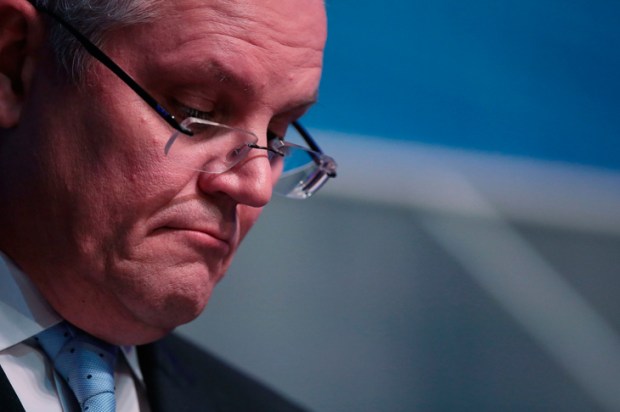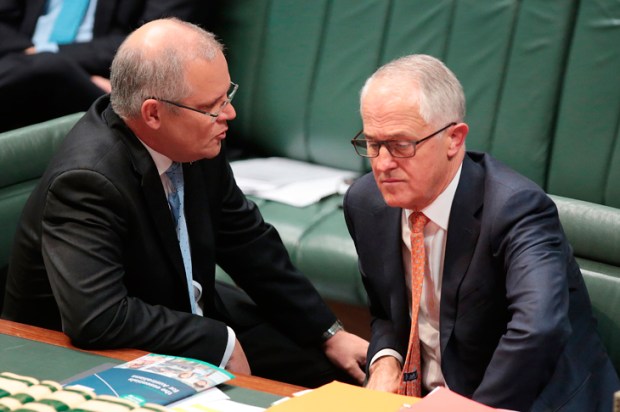The postwar generation had lived a charmed life. With Menzies they rode the long postwar economic boom. The automobile had proliferated and changed their way of life; cars gave them both the comfort of the suburb and the thrills of independence. They were the fortunate sons and daughters of Menzies’ forgotten people. In the late ‘60s, with little else to do, Australia’s middle class youths became restless, bored, and politicised, fashioning themselves after France’s soixante-huitards. Ask them now and they’ll tell you all sorts of dubious tales regarding the Sixties (not the ‘60s – the Sixties): free love, social liberation, dissent, experimentation, and generational conflict. Hair, baby!
They found their glorious leader in Gough Whitlam, who they elected in 1972. For two years and eleven months, the pied piper of lefty Boomers seemed to embody everything for which they’d fought. On his pipe he played the magical tune of social reform and with them danced merrily through forests of money trees.
But suddenly, the fairytale ended. On the steps of Parliament House on November 11, 1975, the bright lights of their youth faltered and failed, and collectively they entered a period of grieving that has lasted four decades. Since that morning, Australia has had two Remembrance Days: one for fallen soldiers, the other for the broken dreams of hippies and mods.
They rarely spoke about it. Not in the few years afterwards, at least. It was a silent grief, for the most part. The trauma was waiting, hushed, crouching in the shadows of the corner of their minds. Sometimes they spoke to one another, to their siblings and friends – not in stories, but in outbursts of emotion. John Kerr’s name and the gentle strains of ‘It’s Time’ would trigger the nightmares and sobbing.
Denial turned to anger. Who was responsible? Was it Fraser and Kerr? Was it Buckingham Palace? Was it the CIA? What was ASIO’s part in all of this? The novelist Peter Carey thinks he knows: ‘it is my belief and the belief of many serious journalists and writers that the US Government destabilised and helped overthrow our elected government … Americans overthrew our government,’ he told the ABC shortly after Whitlam’s death last year. Christopher Boyce, who’s largely responsible for the CIA theory, assured the SBS: ‘To me, that was a coup. You Australians can call it whatever you want, but that’s — I cannot sit here and prove it, but I believe it.’ Alas, not even Whitlam shared Boyce’s faith.
Grief does strange things to people. Maintaining the rage is one of those strange things. There was no revolution but, in between telling Millenials to get jobs and worrying about Chinese property investors, there’s been plenty of hyperbole. Many of the postwar generation – and even their children – still believe The Dismissal was a crime, a coup d’état, a travesty, and a tragedy.
A Guardian columnist has recently described November 11, 1975 as ‘Australia’s JFK moment’. On November 22, 1963, Lee Harvey Oswald shot the US President John F. Kennedy through the head and neck, killing him.
If you squint hard enough, you might see similarities between murder and an unpopular Prime Minister of Australia losing his job. If you squint even harder, you might even agree with John Pilger, who’s likened The Dismissal to ‘Washington’s role in the fascist putsch against an elected government in Ukraine’. Of course, if you fully close your eyes all sorts of interesting things are imaginable.
Whitlam’s hagiography was always going to be a curious beast, though. It’s claimed that the White Australia Policy was dismantled under Whitlam. It wasn’t – the White Australia Policy, as one historian puts it, suffered a ‘long, slow death’ beginning in the aftermath of the Second World War. It’s also pointed out that Whitlam initiated our relationship China. He didn’t – that was a decade and a half earlier under Menzies, and Whitlam was an awful diplomat. Bringing the troops back from Vietnam? All but a handful were already home by 1971. Multiculturalism and immigration? Hardly. And so on.
(It is, however, well-documented that Whitlam refused entry to Indo-Chinese refugees fleeing Ho Chi Min, and that he assented to Indonesia’s invasion of East Timor while turning a blind eye to the fact that General Suharto had executed over half a million of his own people.)
Last year, Labor’s own Craig Emerson told the ABC: ‘I thought [Whitlam] was marvellous. And I remember at a friend’s 21st birthday party, that’s when the Whitlam government was defeated. And it was defeated because of the economy, because of the state of the economy. The Australian people voted very, very strongly to remove the Whitlam government. That’s sad but it’s true.’ And his response to claims it was the CIA what done it? ‘Well, I don’t think frankly that the CIA got to 10 million voters and told them how to vote. Whether or not they were involved in the actual dismissal process, I don’t think they inculcated to the Australian people [and said] “You should vote for Malcolm Fraser”.’
Indeed, in 1975, Labor lost nearly half its seats; Fraser’s Liberals won government with the largest majority in Australian history. By the time of Whitlam’s removal, most Australians wanted him gone, anyway.
The shorter version of all of this is that The Dismissal gave Whitlam mythical status among many on the postwar Left, rendered them almost incapable of speaking about him with any sense of proportion, and they won’t stop banging on about it even though it’s long been irrelevant to contemporary Australian politics. Perhaps Whitlam would’ve gone quietly – like Jack Lang when he was dismissed in 1932 – if it weren’t for masses of twenty-somethings that made/make him their God and still refuse to admit otherwise. They surely wouldn’t have been pleased when Whitlam described the Australian Left to his friend, the dictator Suharto, in April 1975: ‘They tended to be paternalistic, patronising and wholly convinced of their purity and of the soundness of their own views.’
Got something to add? Join the discussion and comment below.
Dr Ben Wilkie is an Australian historian
You might disagree with half of it, but you’ll enjoy reading all of it. Try your first month for free, then just $2 a week for the remainder of your first year.












